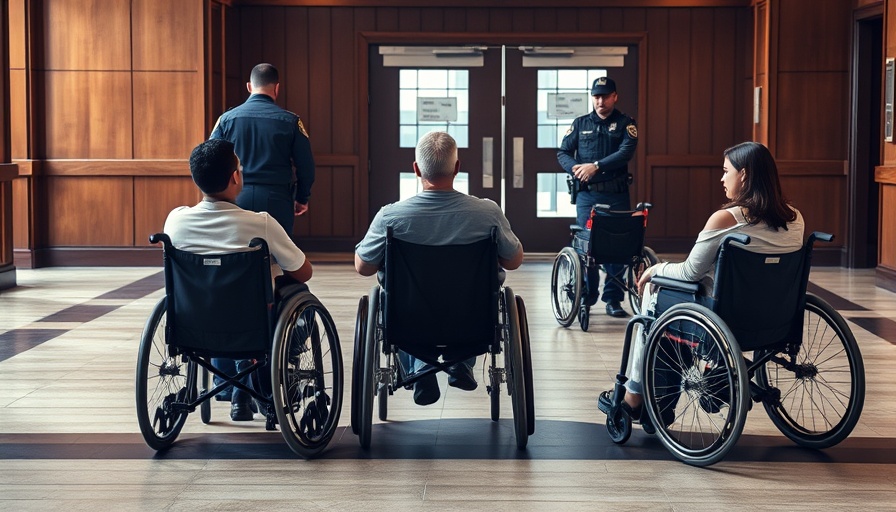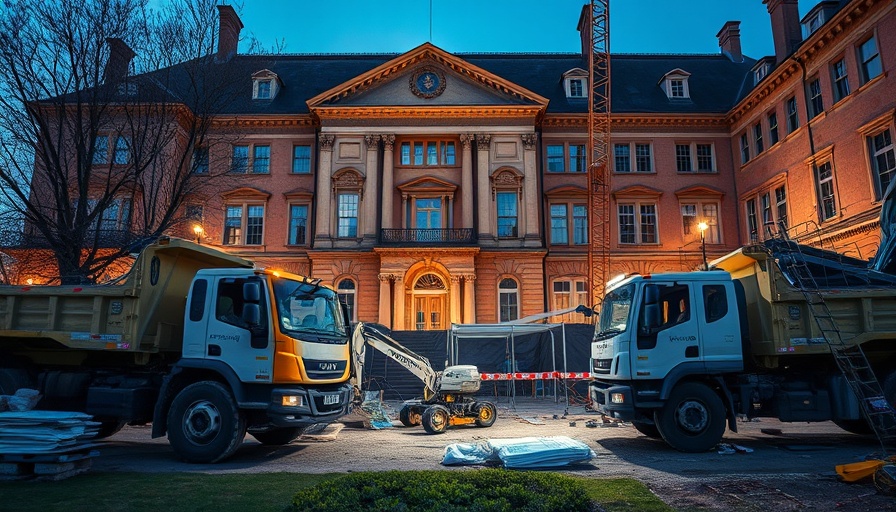
Shocking Arrests of Disabled Protesters: A Call for Justice
In a distressing incident that has raised eyebrows and ignited outrage, videos have surfaced showing U.S. Capitol Police officers arresting disabled protesters in wheelchairs. These arrests occurred during a heated Senate debate over proposed cuts to Medicaid funding. The footage, shared on social media by Aaron Black, senior political advisor to Rep. Nancy Pelosi, depicted a stark scene in the Russell Senate Office Building where protesters were escorted away with zip ties around their wrists.
Understanding the Protests: What Are They Demanding?
The disabled protesters were advocating against the proposed budget cuts outlined in President Trump's ambitious yet controversial "Big Beautiful Bill," which aims to slash Medicaid funding by an astounding $793 billion over the next decade. This reduction is drawing significant criticism, as Medicaid currently encompasses around 34 million disabled and elderly Americans, providing them essential health coverage.
The stakes are incredibly high: according to the Annals of Internal Medicine, these budget cuts could lead to as many as 24,600 additional deaths annually, triggering an alarming potential public health crisis. Moreover, a report from Senator Bernie Sanders' office indicates that the cuts could leave an average of 65% more individuals uninsured across various states.
A Dangerous Precedent: Civil Rights and Police Action
This alarming event highlights a troubling trend regarding how law enforcement interacts with marginalized communities, especially those advocating for their civil rights. Protesters are asserting that without Medicaid, they face a life-threatening situation, as they rely on this support for their daily survival and health care needs.
Katy Neas, CEO of the disability advocacy group, The Arc, emphasized the fallacy in the assumption that only certain individuals qualify for assistance under the strict social security definitions. This incident complicates a broader conversation about accessibility, rights, and the methods employed by police in response to civil disobedience.
The Legal Landscape: What This Means for Civil Rights
According to Capitol Police, protesting in congressional buildings is illegal, an assertion that raises significant concerns about free speech and civil liberties. The question remains: are these laws serving the interests of democracy and public representation, or do they inhibit essential conversations around critical issues such as healthcare?
The arrests also reflect a broader disconnect between lawmakers and the citizens they represent, particularly those most vulnerable to policy changes. The criminalization of such peaceful protests prompts civil rights attorneys to explore the legality of the arrests and what they mean for future activism.
Taking a Stand: Empathy and Advocacy
As onlookers and advocates continue to rally against the proposed Medicaid cuts, it is crucial for allies and advocates to lend their voices and support. Understanding the harsh realities faced by disabled individuals is the first step towards creating a more just and equitable society.
This incident is a wake-up call to be vigilant about civil rights and to stand in solidarity with marginalized communities fighting for their survival and dignity. Every American deserves healthcare, and it is imperative that lawmakers hear the cries for help from those directly affected by policy changes.
 Add Row
Add Row  Add
Add 

 Add Row
Add Row  Add Element
Add Element 




Write A Comment